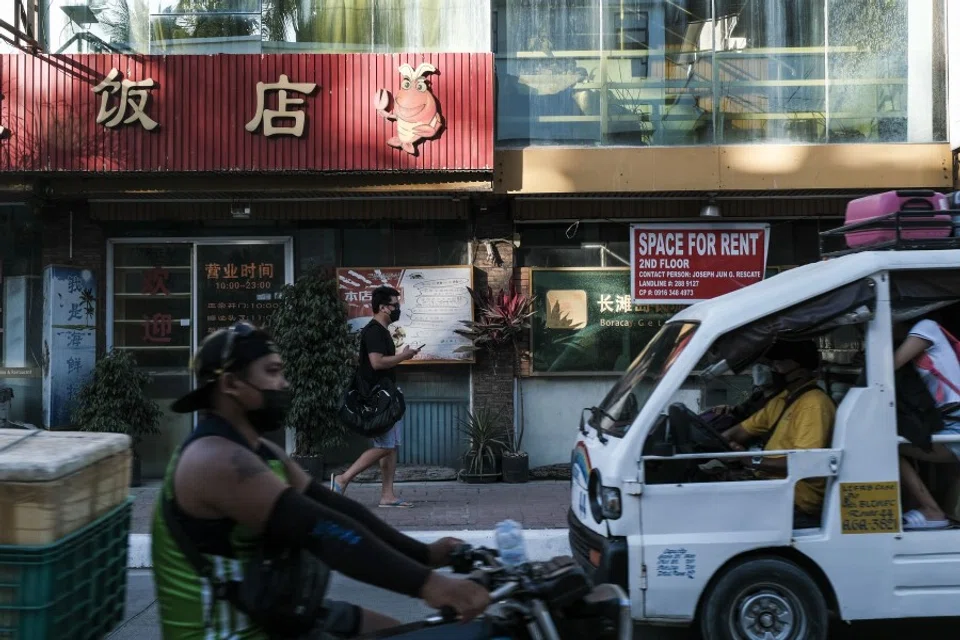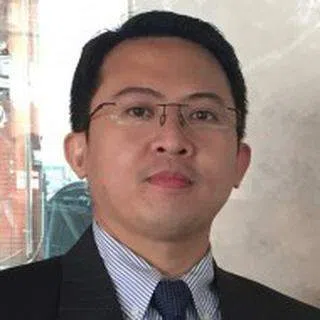The Belt and Road Initiative and the Philippines' post-Duterte China challenge
Even under China-friendly President Duterte, Chinese BRI projects in the Philippines still encountered strong political opposition and faced several challenges in their roll-out. Ultimately, a positive domestic response to the BRI hinges on whether Manila can negotiate mutually beneficial and fair deals that allow China to contribute to the Philippines' economic agenda.

With Philippine President Rodrigo Duterte stepping down in May, uncertainty awaits the policy environment concerning China's Belt and Road Initiative (BRI) in the Philippines. While the BRI was introduced in 2013 during the presidency of Benigno Aquino III, it was only on Duterte's watch that the Philippines became an official member of the BRI. Nine years into its establishment, there remain grey areas about what projects and efforts fall under the BRI's ambit.
To determine the prospects of the BRI in the Philippines, it is important to first identify its parameters. China unilaterally classifies what activities it considers as part of the BRI, as can be seen on the Belt and Road Portal, the official webpage of the BRI, and the annual Belt and Road Big Data Report.
For country-specific classifications, the Chinese embassy in Manila has issued a primer on BRI activities. In line with the BRI's so-called "Five Connectivities", the Chinese embassy has touted greater policy coordination, increased trade, investments, financial, and people-to-people connectivity (such as tourism, Philippine access to the Chinese labour market, and the creation of a Chinese Cultural Center).
Noticeably, not all Chinese projects in the Philippines (for instance, Mindanao Rail, Makati Subway, Davao City Coastal Road, and the Samal Island-Davao City Connector) have been explicitly labelled as part of the BRI. This situation is akin to the Chinese government regarding increased investments as part of the BRI initiative, but without recognising all projects or operations supported by private Chinese investment.
The only exception concerning whether an investment is designated as BRI-related is if it involves a business deemed illegal or immoral in China (such as Chinese online gaming companies operating in the Philippines), which the Chinese government flatly disowns and has repeatedly asked the Philippine government to shut down. As long as private Chinese investments and development projects promote socioeconomic connectivity and mutual dependence and advance bilateral ties between China and the BRI member state, they arguably uphold the spirit of the BRI.
While the BRI has progressed under Duterte, many projects have been marred with irregularities.

While the BRI has progressed under Duterte, many projects have been marred with irregularities. For example, China Telecom's investment, Kaliwa Dam, Safe Philippines, and the Chico River project have all been controversial. The concerns are economic (debt trap/unsustainable debt, non-use of local labour), social (lack of consultations with affected stakeholders), environmental, and geopolitical (South China Sea (SCS)).
While some of these concerns are valid and do not apply to all Chinese-sponsored BRI projects, Filipino concerns about the SCS and external narratives about the BRI exacerbate domestic political sensitivity towards China as an economic partner.
Other Chinese infrastructure projects that have not been classified as BRI ones have been heavily scrutinised on national security grounds. These include the Sangley Airport project and Chinese investment in the National Grid Corporation of the Philippines (NGCP). Former US President Donald Trump's trade war with China forced a major Philippines telecommunications giant, Globe Telecom, to avoid the usage of Huawei equipment to mitigate supply chain risks.
With geopolitical competition looming large, the Philippines, particularly its legislature, is becoming more discriminating in engaging with China. For example, in the proposed amendment to the Public Service Act, foreign state-owned enterprises will be prohibited from owning capital in Philippine critical infrastructures. This also highlights that of the BRI's "Five Connectivities", foreign investment in infrastructure most often takes the political hit in the Philippines.
In election season, it will be natural for candidates to label China as the bogeyman, as they embellish their nationalist credentials.

So far, all the major presidential candidates have stated that they will carry on Duterte's Build Build Build programme and improve on it. This means that economically, the BRI, especially in its non-physical infrastructural dimensions, will continue to be relevant and have a niche in the Philippine development agenda.
While the Duterte administration signed an MOU on the BRI and a Ten-Year Infrastructure Development Plan with China, whether the next president sees China as a friend, a threat, or a "frenemy" will affect their traction. This is especially given how current developments in the SCS dispute continue to cast a shadow over bilateral relations, and impact the Philippines' policy process and decision-making.
The four presidential candidates, Leni Robredo, Isko Moreno, Manny Pacquiao and Panfilo Lacson, have all stated that they will uphold the UN Arbitral Award on the SCS, develop security relations with the US, build stronger armed forces, yet engage with China (including on joint development in the SCS).
In election season, it will be natural for candidates to label China as the bogeyman, as they embellish their nationalist credentials. Even Duterte, during his 2016 campaign, had boasted that he would ride a jet ski to plant a Philippine flag on Scarborough Shoal. This is why even Ferdinand Marcos Jr, the current frontrunner, recently changed tack from being fatalistic towards China to advocating a stronger Filipino military presence in the SCS.
As selected Chinese projects continue to be subject to controversy in the Philippines, China's Green Silk Road and the Clean Silk Road, and efforts to make BRI projects sustainable and free of corruption, will be put to the test. Overall, Duterte's presidency has demonstrated that a popular political leadership's reception of Chinese projects and initiatives does not necessarily translate into their public acceptance. Essentially, whether domestic perceptions of the BRI in the Philippines are positive depends not only on the management or mismanagement of security issues and outside influences, but also whether Manila does the work of negotiating mutually beneficial and fair deals that would allow China to contribute to the Philippines' economic agenda.
This article was first published by ISEAS - Yusof Ishak Institute as a Fulcrum commentary.
Related: 2022 elections may bring change to the Philippines' China policy | While preserving good relations with China, the Philippines must exercise its maritime rights | Can the next Philippine president stand up to Chinese pressure in the South China Sea? | Second Thomas ShoaI: Is China bullying its smaller neighbours in the South China Sea?





![[Photos] Fact versus fiction: The portrayal of WWII anti-Japanese martyrs in Taiwan](https://cassette.sphdigital.com.sg/image/thinkchina/3494f8bd481870f7c65b881fd21a3fd733f573f23232376e39c532a2c7593cbc)